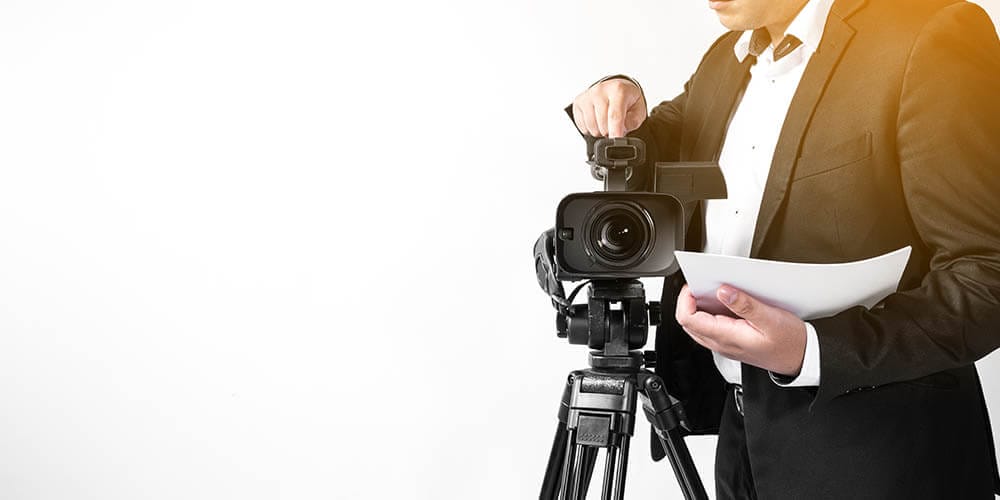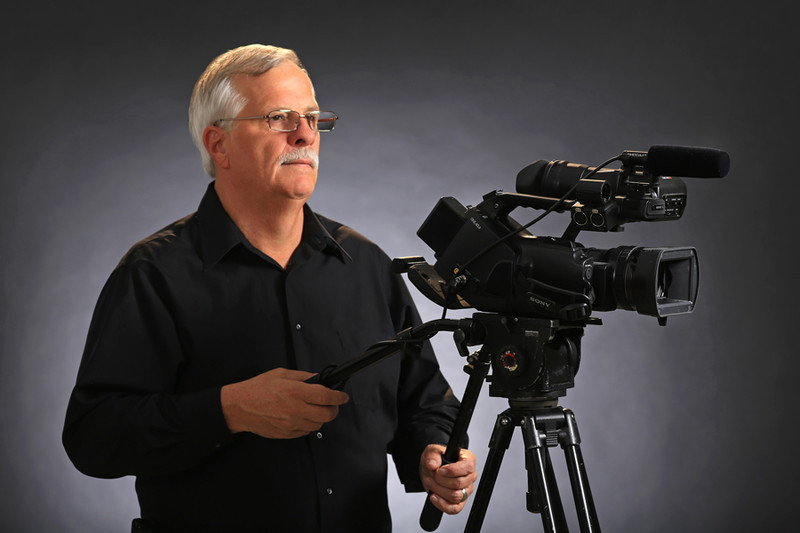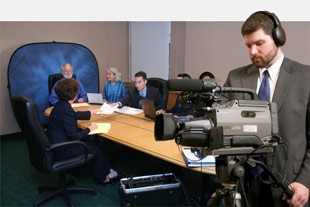The Function of Legal Videography in Depositions and Trials
Lawful videography has actually become a vital tool in both depositions and tests, giving a diverse method to documenting witness testaments. By recording not only the spoken word yet likewise the subtleties of non-verbal communication, this tool improves the reliability of testimonies and maintains vital evidence for future process (legal videography). As lawful professionals significantly acknowledge its value, it motivates a deeper examination of exactly how these visual documents can influence juror assumptions and test outcomes. What effects might these developments hold for the future of lawful method?

Significance of Lawful Videography
Lawful videography plays a critical function in the documents and presentation of depositions and trials. This customized field integrates technological abilities with legal understanding to produce a reliable record of procedures that can dramatically influence instance outcomes. The visual element of lawful videography improves the understanding of witness testimony, enabling jurors and judges to observe not just the talked words yet also the behavior, feelings, and body movement of the witnesses.
Furthermore, legal videography provides an objective account of occasions, decreasing the possibility for false impression that can accompany created transcripts alone. This aesthetic paperwork acts as a critical device during trial discussions, helping with a clearer and more convincing narrative for both complainants and defendants. Furthermore, the capacity to replay video sectors during court procedures allows lawful teams to emphasize key factors, strengthening their disagreements efficiently.
The value of legal videography expands beyond the courtroom; it additionally plays an important duty in protecting evidence for future referral, whether for appeals or more legal activity. Its integration into the lawful process is crucial for guaranteeing a reasonable and accurate depiction of the realities, ultimately adding to the pursuit of justice.

Process of Legal Videography
While recording the subtleties of depositions and trials, the process of legal videography entails several crucial actions that make certain top quality, precise recordings. A professional legal videographer prepares by evaluating the situation products and recognizing the details needs of the deposition or test. This prep work consists of acquainting themselves with the individuals and the context, which aids in capturing relevant details.
On the day of the recording, the videographer establishes the required equipment, which usually includes high-def cameras, microphones, and proper lighting. Ensuring optimum angles and audio top quality is critical, as it straight influences the efficiency of the recording. The videographer interacts with attorneys and participants to establish methods, making certain that every person recognizes the recording process.
During the deposition or test, the videographer meticulously tapes the proceedings, paying very close attention to both spoken and non-verbal signs. This includes recording the disposition and reactions of witnesses and attorneys. After the session wraps up, the videographer might edit the video for quality and conformity with legal standards, generating a last product that properly shows the procedures for future reference and usage in legal contexts.
Advantages in Depositions
The consolidation of videography in depositions provides numerous benefits that enhance the total process of gathering proof. One primary advantage is the capability to record witness statements with visual and acoustic fidelity, giving a much more exact representation of the witness's disposition, tone, and body movement. This multidimensional method permits attorneys and courts to evaluate credibility extra efficiently than typical written transcripts alone.
In addition, videographed depositions serve as an effective tool for protecting testament. Ought to a witness come to be unavailable for test, their recorded deposition can be played in court, making sure that their proof remains obtainable and relevant. This element dramatically decreases the danger of shedding essential info that can impact situation end Resources results.

Last but not least, videography boosts the total professionalism of the deposition process, instilling self-confidence in customers pertaining to the thoroughness of their lawful depiction (legal videography). By leveraging innovation, attorneys can considerably improve the effectiveness of depositions
Effect On Trials
In several tests, the combination of videography can considerably influence the discussion of proof and the jury's perception. Lawful videography records witness statements and vital evidence in a vibrant format, allowing jurors to engage with the material on numerous degrees. This visual part improves the storytelling facet of a test, offering context and emotional vibration that conventional text-based evidence might lack.
In addition, video clip recordings can function as effective tools for impeachment throughout interrogation. When discrepancies arise between a witness's previous statements and resource their courtroom testament, video proof supplies an objective referral that can sway jurors' point of views. This immediacy and clearness can bolster the reputation of a celebration's story while concurrently undermining opposing debates.

Future Trends in Legal Videography
As we look toward the future of legal videography, several emerging trends promise to reshape its role within the courtroom. One significant trend is the integration of expert system (AI) in video evaluation and editing and enhancing. AI can simplify the procedure of recognizing crucial minutes in taped depositions, enabling attorneys to rapidly access relevant web content, therefore boosting effectiveness in situation preparation.
Additionally, the surge of digital truth (VR) and augmented fact (AR) modern technologies is anticipated to transform how jurors experience proof. legal videography. By immersing jurors in a simulated setting, these modern technologies can offer a more extensive understanding of complicated situations, leading to even more educated deliberations
In addition, the boosting demand for remote depositions, increased by the COVID-19 pandemic, will likely proceed. Legal videographers will certainly need to adjust to new software and systems to guarantee high-quality recordings in digital settings.
Last but not least, the growing focus on data security will certainly necessitate more stringent protocols for saving and sharing video proof. As the legal landscape advances, legal videographers have to stay abreast of these patterns to keep their significance and effectiveness in the judicial process.
Verdict
In recap, lawful videography offers an essential feature in the judicial procedure, boosting the integrity of depositions and trials. As innovation proceeds to advance, lawful videography is poised to further transform its role within the legal landscape.